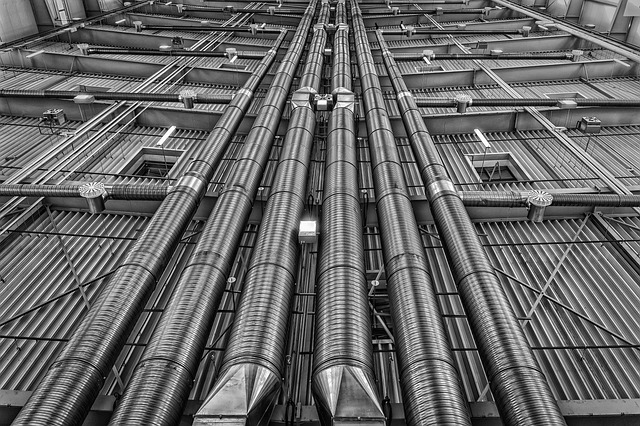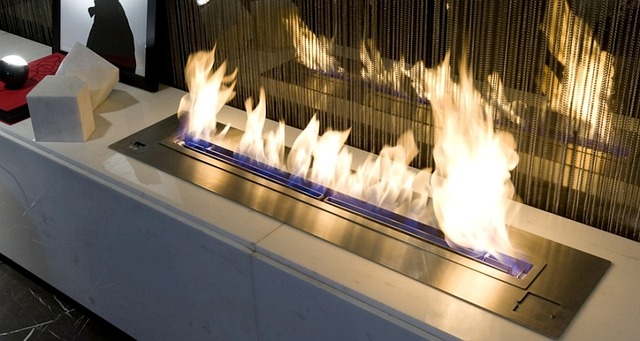Corrosion is a major issue for commercial gas-fired water heaters, especially in environments with impure water containing minerals. To combat this, businesses should focus on understanding corrosion mechanisms and using materials like stainless steel, known for its resistance to rust and oxidation. Stainless steel heaters offer durability, minimizing downtime and maintenance costs in high-capacity, continuous-use settings such as restaurants and hotels. Regular maintenance, including cleaning, inspection, and addressing buildup, is crucial for extending the lifespan of these heaters. By implementing proper care practices, commercial establishments can ensure optimal efficiency and safe operation.
In the bustling world of commercial heating solutions, stainless-steel gas-fired water heaters stand out as reliable and long-lasting options. However, understanding corrosion remains crucial for maintaining optimal performance. This article delves into the intricacies of corrosion within commercial gas-fired water heaters, highlighting the pivotal role of stainless steel in prevention. We explore key factors contributing to the durability of these units and provide essential maintenance tips to prolong their lifespan, ensuring reliable hot water solutions for years to come.
- Understanding Corrosion in Commercial Gas-Fired Water Heaters
- The Role of Stainless Steel in Preventing Corrosion
- Key Factors Contributing to the Durability of Stainless Steel Water Heaters
- Maintenance Tips for Prolonging the Lifespan of Your Commercial Unit
Understanding Corrosion in Commercial Gas-Fired Water Heaters

Corrosion is a common issue that plagues many commercial and industrial operations, including those involving gas-fired water heaters. In the context of commercial gas fired water heaters, corrosion can lead to significant problems, especially in harsh environments where water contains high levels of minerals or impurities. These systems are designed to provide hot water for various applications such as restaurant water heating, hotel hot water systems, and institutional water heating, making reliable performance crucial.
Understanding the mechanisms of corrosion is essential to mitigating its effects. In gas fired systems, corrosion can occur due to the interaction between the metal surfaces and the water chemistry, leading to the formation of acidic or oxidative compounds. High capacity heaters, including tankless water heaters and storage water heaters, are particularly susceptible because they operate under high pressure and temperature conditions. By implementing proper maintenance practices and selecting corrosion-resistant materials, such as stainless steel, commercial businesses can extend the lifespan of their water heating equipment and ensure consistent performance in demanding institutional water heating applications.
The Role of Stainless Steel in Preventing Corrosion

Stainless steel plays a pivotal role in combating corrosion within commercial gas-fired water heaters, offering a robust and reliable solution for various industrial applications. Its inherent properties make it an ideal material choice for harsh environments where traditional materials might falter. The alloy’s resistance to rust and oxidation is well-documented, making it highly effective in preventing metal deterioration, especially when exposed to moisture, chemicals, or extreme temperatures—common factors in commercial water heating systems.
This durability is particularly advantageous in the context of gas fired water heaters designed for commercial use, such as those found in restaurants, hotels, and institutional settings. Commercial water heating often involves high-capacity heaters operating continuously, subjecting them to intense stress. Stainless steel’s superior corrosion resistance ensures these systems can maintain efficiency and safety over extended periods, minimizing downtime and maintenance costs associated with metal fatigue or failure.
Key Factors Contributing to the Durability of Stainless Steel Water Heaters

The durability and longevity of stainless-steel commercial gas-fired water heaters are attributed to several key factors. Firstly, stainless steel itself is highly resistant to corrosion due to its natural ability to form a protective surface layer called passivation. This inherent property makes it an excellent choice for harsh environments, including commercial water heating applications.
Moreover, modern manufacturing processes ensure that these water heaters are crafted with precise precision and high-quality materials. Additional features like robust insulation, advanced heat transfer technologies, and well-designed gas combustion systems contribute to their overall durability. These factors not only enhance the performance of commercial gas heaters but also extend their service life, making them a reliable option for institutional water heating needs, such as in restaurants, hotels, and other facilities that demand high-capacity hot water supply.
Maintenance Tips for Prolonging the Lifespan of Your Commercial Unit

Proper maintenance is key to extending the lifespan of your commercial gas-fired water heaters. Regular cleaning and inspection are essential, especially in industrial settings where units might face harsher conditions. Start by ensuring all components are free from debris and sediment buildup, as this can block vital passages and affect performance. Check for any signs of damage or corrosion, addressing these issues promptly to prevent further deterioration.
Consider implementing a maintenance schedule that includes periodic flushes and filter changes. For commercial water heating systems like tankless heaters or storage units used in restaurants and hotels, regular pressure testing and temperature monitoring can help maintain optimal efficiency. Additionally, keeping an eye on gas lines and valves for leaks ensures safe operation and prevents significant damage to your gas fired water heaters commercial.
Commercial gas-fired water heaters made of stainless steel offer a robust solution for long-lasting performance in challenging environments. By understanding corrosion and leveraging the material’s inherent properties, businesses can ensure their water heating systems remain efficient and reliable. Regular maintenance, combined with an awareness of key factors like pH balance and proper installation, will further extend the lifespan of these durable heaters, providing consistent hot water supply for years to come.
